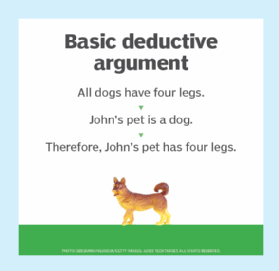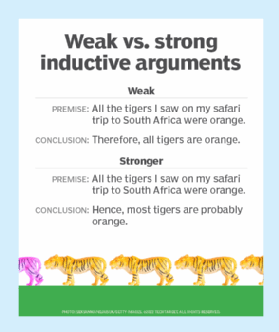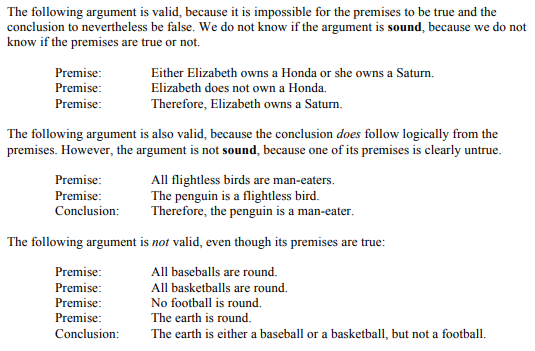Literary + Rhetorical Devices - Vocab Set 3
5.0(1)
Card Sorting
1/39
Earn XP
Description and Tags
82-121
Last updated 11:04 PM on 3/9/23
Name | Mastery | Learn | Test | Matching | Spaced | Call with Kai |
|---|
No analytics yet
Send a link to your students to track their progress
40 Terms
1
New cards
Periodic sentence
When the main idea is not completed until the end of the sentence. The writer begins with subordinate elements and postpones the main clause. (“His confidence broken, his limbs shaking, his collar wet with perspiration, he doubted whether he could ever again appear before an audience.”)
2
New cards
Simple sentence
Contains only one independent clause
3
New cards
Declarative sentence
States an idea. It does not give a command or request, nor does it ask a question. (“The ball is round.”)
4
New cards
Imperative sentence
Issues a command (“Kick the ball.”)
5
New cards
Interrogative sentence
Sentences incorporating interrogative pronouns (what, which, who, whom, and whose) (“To whom did you kick the ball?”)
6
New cards
Style
The choices in diction, tone, and syntax that a writer makes; may be conscious or unconscious.
7
New cards
Symbol
Anything that represents or stands for something else. Usually is something concrete such as an object, actions, character; something that represents another more abstract concept
8
New cards
Syntax / sentence variety
Grammatical arrangement of words. Includes length of sentences, how the length relates to tone and meaning, type of sentence, how sentences relate to each other, etc.
9
New cards
Theme
The central idea or message of a work
10
New cards
Thesis
The sentence or groups of sentences that directly expresses the author's opinion, purpose, meaning, or proposition
11
New cards
Tone
A writer's attitude toward his subject matter revealed through diction, figurative language and organization
12
New cards
Understatement
The ironic minimizing of fact; presents something as less significant than it is (Saying "It’s a bit chilly outside” in below freezing temperatures)
13
New cards
Litotes
A particular form of understatement, generated by denying the opposite of the statement which otherwise would be used (Saying “Their cooking isn’t terrible” to say that someone has good cooking.)
14
New cards
Argument
A piece of reasoning with one or more premises and a conclusion.
(Premise: All Spam is pink.
Premise: I am eating Spam.
Conclusion: I am eating something that is pink.)
(Premise: All Spam is pink.
Premise: I am eating Spam.
Conclusion: I am eating something that is pink.)
15
New cards
Premise
Statements offered as reasons to support a conclusion
16
New cards
Conclusion
The end result of the argument – the main point being made
17
New cards
Aristotle’s appeals
Ethos, pathos, and logos - Used in argumentative writing to persuade an audience that one’s ideas are valid, or more valid than someone else's
18
New cards
Ethos
Persuading by the credibility of the author
19
New cards
Pathos
Persuading by appealing to the reader’s emotions
20
New cards
Logos
Persuading by the use of reasoning, using true premises and valid arguments; strongest appeal
21
New cards
Concession
Accepting at least part or all of an opposing viewpoint. Often used to make one’s own argument stronger by demonstrating that one is willing to accept what is obviously true and reasonable, even if it is presented by the opposition.
22
New cards
Conditional statement
An if-then statement consisting of two parts, an antecedent and a consequent (“If you studied hard, then you will pass the test.”)
Often used as premises in an argument
(Premise: If I study, I will do well on my test. (conditional)
Premise: I have studied.
Conclusion: Ergo, I will do well on the test.)
Often used as premises in an argument
(Premise: If I study, I will do well on my test. (conditional)
Premise: I have studied.
Conclusion: Ergo, I will do well on the test.)
23
New cards
Contradiction
When one asserts two mutually exclusive propositions (“Nobody goes to that restaurant; it is too crowded.”)
24
New cards
Counterexample
An example that runs counter to (opposes) a generalization, thus falsifying it
(Premise: Jane argued that all whales are endangered.
Premise: Belugas are a type of whale.
Premise: Belugas are not endangered.
Conclusion: Therefore, Jane’s argument is unsound.)
(Premise: Jane argued that all whales are endangered.
Premise: Belugas are a type of whale.
Premise: Belugas are not endangered.
Conclusion: Therefore, Jane’s argument is unsound.)
25
New cards
Deductive argument
An argument in which it is thought that the premises provide a guarantee of the truth of the conclusion. In a deductive argument, the premises are intended to provide support for the conclusion that is so strong that, if the premises are true, it would be impossible for the conclusion to be false.

26
New cards
Fallacy
An attractive but unreliable piece of reasoning
27
New cards
Ad hominem fallacy
Personally attacking your opponents instead of their arguments. It is an argument that appeals to emotion rather than reason, feeling rather than intellect.
28
New cards
Appeal to authority fallacy
The claim that because somebody famous supports an idea, the idea must be right
29
New cards
Bandwagon fallacy
The claim that something is valid because many people believe or do it
30
New cards
Emotional fallacy
An attempt to replace a logical argument with an appeal to the audience’s emotions
31
New cards
Bad analogy fallacy
Claiming that two situations are highly similar when they aren't (“We have pure food and drug laws regulating what we put in our bodies; why can't we have laws to keep musicians from giving us filth for the mind?”)
32
New cards
Cliche thinking fallacy
Using a well-known saying as evidence, as if it is proven, or as if it has no exceptions
33
New cards
False cause fallacy
Assuming that because two things happened, the first one caused the second one (““Before women got the vote, there were no nuclear weapons. Therefore women’s suffrage must have led to nuclear weapons.”)
34
New cards
Hasty generalization fallacy
A generalization based on too little or unrepresentative data. (“My uncle didn’t go to college, and he makes a lot of money. So, people who don’t go to college do just as well as those who do.”)
35
New cards
Non sequitur fallacy
A conclusion that does not follow from its premises; an invalid argument (“Hinduism is one of the world’s largest religious groups. It is also one of the world’s oldest religions. Hinduism helps millions of people lead happier, more productive lives. Therefore the principles of Hinduism must be true.”)
36
New cards
Slippery slope fallacy
The assumption that once started, a situation will continue to its most extreme possible outcome. (“If you drink a glass of wine, then you’ll soon be drinking all the time, and then you’ll become a homeless alcoholic.”)
37
New cards
Inductive argument
An argument in which it is thought that the premises provide reasons supporting the probable truth of the conclusion. In an inductive argument, the premises are intended only to be so strong that, if they are true, then it is unlikely that the conclusion is false.

38
New cards
Sound argument
A deductive argument is said to be sound if it meets two conditions: First, that the line of reasoning from the premises to the conclusion is valid. Second, that the premises are true.
39
New cards
Unstated premises
Premises that a deductive argument requires, but are not explicitly stated
40
New cards
Valid argument
An argument is valid if the conclusion logically follows from the premises
